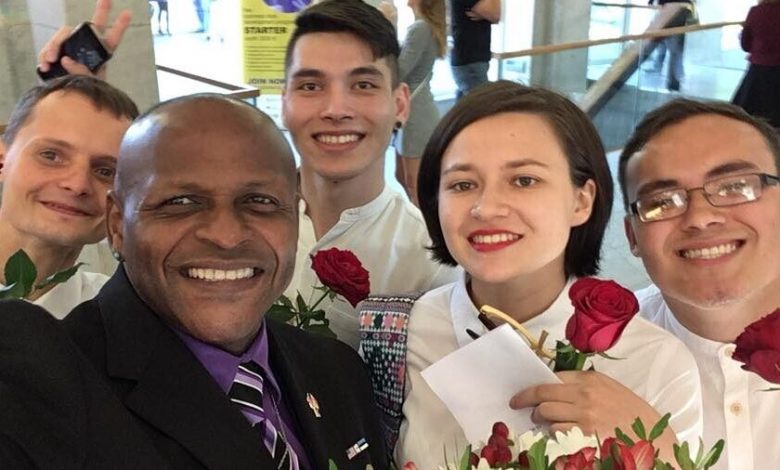Academic and cultural exchange for institutions

Virtual Educators
Virtual educators are US citizens with at least a master’s degree in TESOL and proven teaching experience. Their projects provide Mexican universities with online support for up to 10 hours a week. Her responsibilities include workshops on topics such as English teaching methodology, academic writing, exam preparation (TOEFL, GRE) and conversation, as well as team teaching and attending academic events.
Proposals are received twice a year (May-June and October-November) and require a lead time of at least 10 weeks before the desired start date. A cost sharing is not required.
website
English language specialist

Specialists are US citizens with at least a master’s degree in TESOL, extensive teaching experience and expertise in specific areas. They work with universities and their projects can be in-person, online or hybrid. Specialists can act as advisors, lead teams in the development of academic projects, provide specialized training in their areas of expertise, and more.
Proposals are received on an ongoing basis and require a lead time of at least 10 weeks before the desired start date for online projects and at least 12 weeks for face-to-face projects. Face-to-face projects can last between a minimum of 2 weeks and a maximum of 3 months. Host organizations are encouraged to contribute to the costs by providing some or all of the following services: local accommodation, meals and transport. Online and hybrid projects are more flexible in terms of time. Online projects do not require cost sharing.
website
English speaking Fellow

Fellows are US citizens with at least a master’s degree in TESOL and proven teaching experience. Your projects are completely personal; Scholars are assigned to an institution for an academic year (10 months), typically from late August to June. Scholars can provide direct college-level language instruction, teach college-level subject subjects, conduct professional development workshops on English teaching methodology, lead teams in academic project development, offer workshops, and more.
Proposals require a lead time of one year and must be submitted to RELO in August. The host institution should pay for the rent of a furnished house or apartment in a safe area and associated utilities (running water, electricity, etc.) for the duration of the fellowship. The host must also provide office space with internet access and preferably computer equipment.
website
English Access Micro Scholarship

The host institutions of the Access program, through the scholarship component, teach English, media literacy, environmental awareness, leadership skills, and other core skills to worthy youth. An Access alumni component continues to build on these and other job preparation skills. A teacher education component offers English teachers of all levels virtual and in-person professional development opportunities.
website
Return to Education and Exchange page
The post “Academic and Cultural Exchange for Institutions” first appeared at US Embassies and Consulates in Mexico.

